academy-award-winners
Javier Bardem
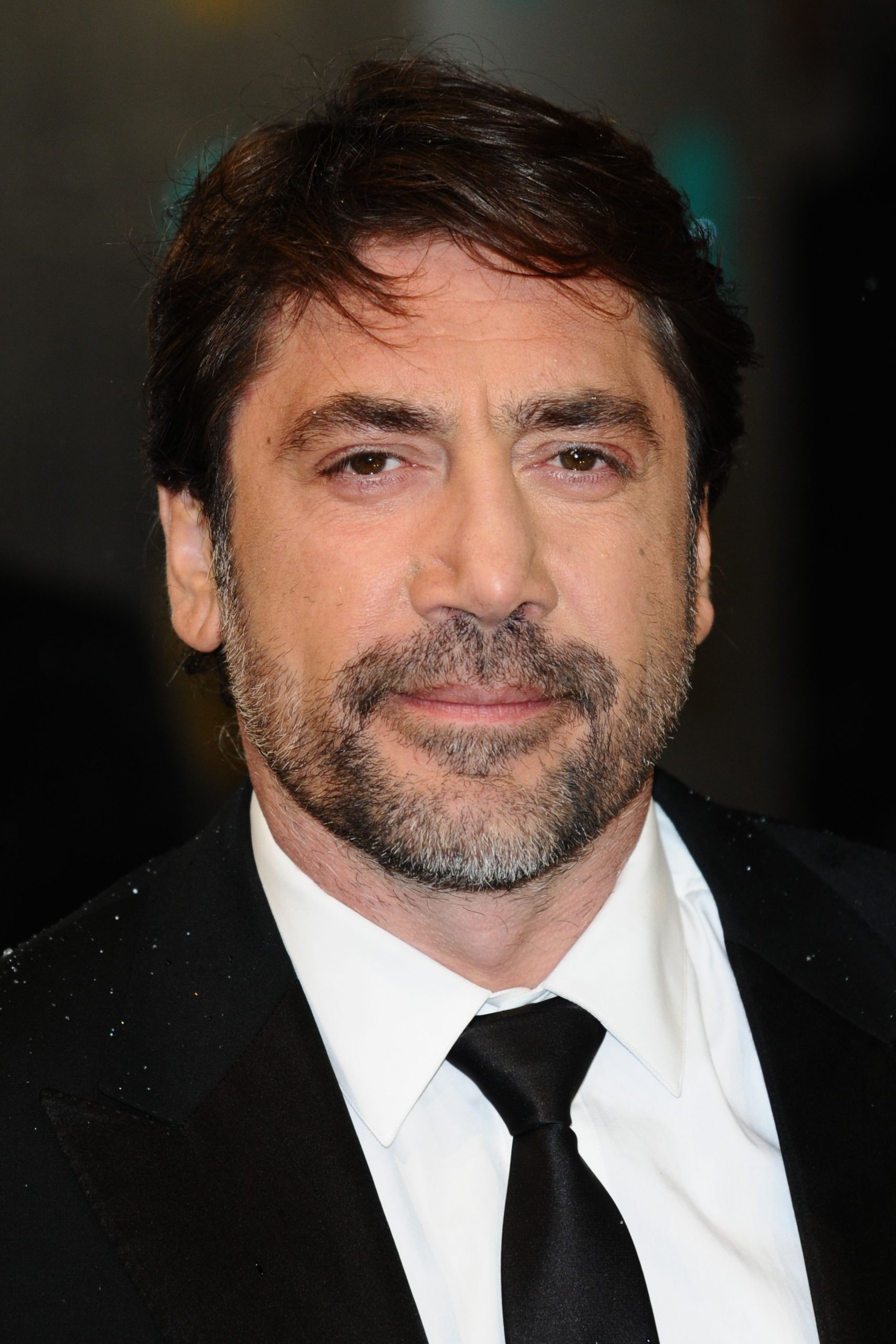
On this date in 1969, Javier Ángel Encinas Bardem was born in Las Palmas de Gran Canaria in the Canary Islands, Spain. Bardem grew up in a family of actors (except his father, who was a businessman). He began acting at age 6 in the Spanish television series “El Pícaro” (1974). As a teen he acted in television and played rugby for Spain’s national team. His breakthrough role was his Oscar-nominated portrayal of Cuban poet and novelist Reinaldo Arenas in “Before Night Falls” (2000).
Exceptional performances followed in “The Dancer Upstairs” (2002), directed by John Malkovich, “Collateral” (2004), “Goya’s Ghosts” (2006), also starring Natalie Portman, the Coen brothers’ “No Country for Old Men” (2007), “Love in the Time of Cholera” (2007), Woody Allen’s “Vicky Christina Barcelona” (2008), “Biutiful” (2010) and “Eat Pray Love” (2010). He won the 2008 Academy Award for Best Supporting Actor for his performance in “No Country for Old Men” and was nominated in 2011 in the Best Actor category for “Biutiful.”
In “Sons of the Clouds: The Last Colony” (2012), he demonstrated the suffering of the Sahrawi people in refugee camps. Other roles include 2017’s “Pirates of the Caribbean: Dead Men Tell No Tales,” the horror film “Mother!” (2017) and with his spouse Penélope Cruz in “Everybody Knows” in 2018. He was cast as Stilgar in “Dune” (2021).
An article in The Independent (U.K.) refers to Bardem’s turning point with religion: “Now an atheist, he experienced the loss of his father when he was 25. ‘I wasn’t a very committed Catholic before, but when that happened it suddenly all felt so obvious: I now believe religion is our attempt to find an explanation; to feel more protected’ “ (“People watch me. I feel absurd,” Jan. 16, 2011).
After the 2005 legalization of same sex marriage in Spain, Bardem stated if he were a homosexual he would “get married tomorrow just to fuck with the church.” He and Cruz married in 2010 and have two children.
"I always say, 'I don’t believe in God, I believe in Al Pacino' — and that’s true."
— Bardem, Time magazine, “10 questions for Javier Bardem" (Aug. 14, 2008)
Marlon Brando
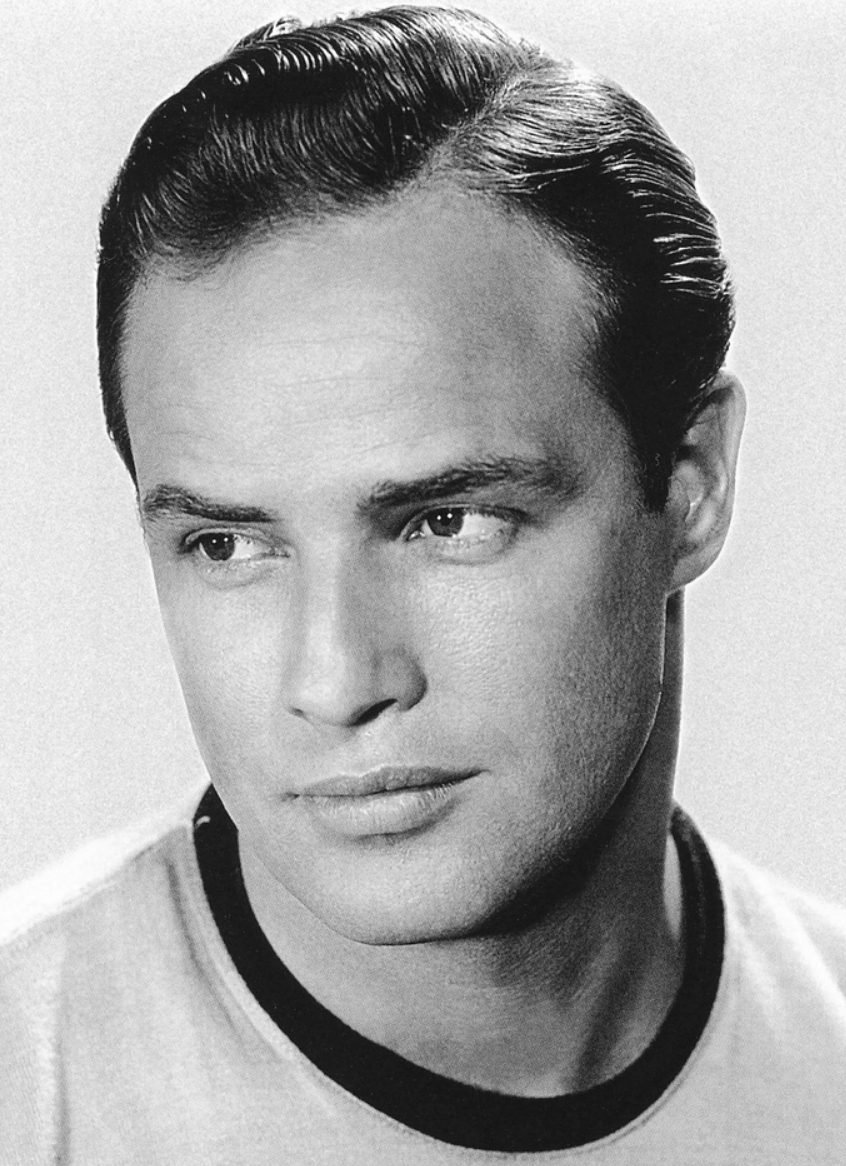
On this date in 1924, actor Marlon Brando Jr. was born in Omaha, Neb., to Dorothy (Pennebaker) and Marlon Brando. When he was 11 his parents separated (both had alcohol problems), and he lived for a time with his Christian Scientist grandmother and became interested in Christian Science. His mother’s theater background — she worked with young Henry Fonda and others — piqued his interest in acting. After dropping out of high school, he moved to New York City in 1943 and studied with Stella Adler and Elia Kazan at the Actors Studio to learn Stanislavski “method” acting techniques.
His Broadway debut was in “I Remember Mama” (1944). His movie debut was as a paraplegic in “The Men” (1950). Reprising his memorable depiction on Broadway of Stanley in “A Streetcar Named Desire” for the 1951 film of the same name, Brando, became an overnight sensation.
His other memorable films include “Julius Caesar” (1953), “On the Waterfront” (1954, for which he won his first Best Actor Oscar), “Guys and Dolls” (1955), “The Teahouse of the August Moon” (1956), “Mutiny on the Bounty” (1962), “The Ugly American” (1963), “Reflections in a Golden Eye” (1967), “The Godfather” (1972, for which he won but declined his second Oscar), “Last Tango in Paris” (1972) and “Apocalypse Now” (1979).
Brando was married three times to actresses: Anna Kashfi (1957-59), Movita Castaneda (1960-62) and Tarita Teriipaia (1962-72). Teriipaia, 18 years his junior, played his love interest in “Mutiny on the Bounty.” He had 11 children, including three with his housekeeper Maria Cristina Ruiz during their relationship from 1988 to 2001.
His son Christian (with Kashfi) was found guilty of voluntary manslaughter and was sentenced to 10 years for the 1990 shooting death of Dag Drollet, the boyfriend of Brando’s daughter Cheyenne (Christian’s half-sister). Cheyenne, who had drug addictions, committed suicide at age 25. Brando was known for eccentricities and promotion of liberal causes. He died at age 80 in 2004.
As an adult, Brando was never active in any religious denomination but was interested in spirituality, metaphysics and nontraditional belief systems such as Native American and Eastern religions, including meditation. He also expressed admiration for Judaism. He has been described as a pantheist and an atheist, although the atheist claim is dubious. In his autobiography he referred to his “inexaustible awe and reverence for nature.” (D. 2004)
PHOTO: Brando during filming of “The Wild One” in 1953; photo under Wikimedia Commons.
“When I was young, I embraced the Judeo-Christian concept of good and evil, and its corollary, that all of us were responsible for our deeds because of the choices we made. I don’t believe this anymore.”
— "Songs My Mother Taught Me" by Marlon Brando with Robert Lindsey (1994)
Emma Thompson
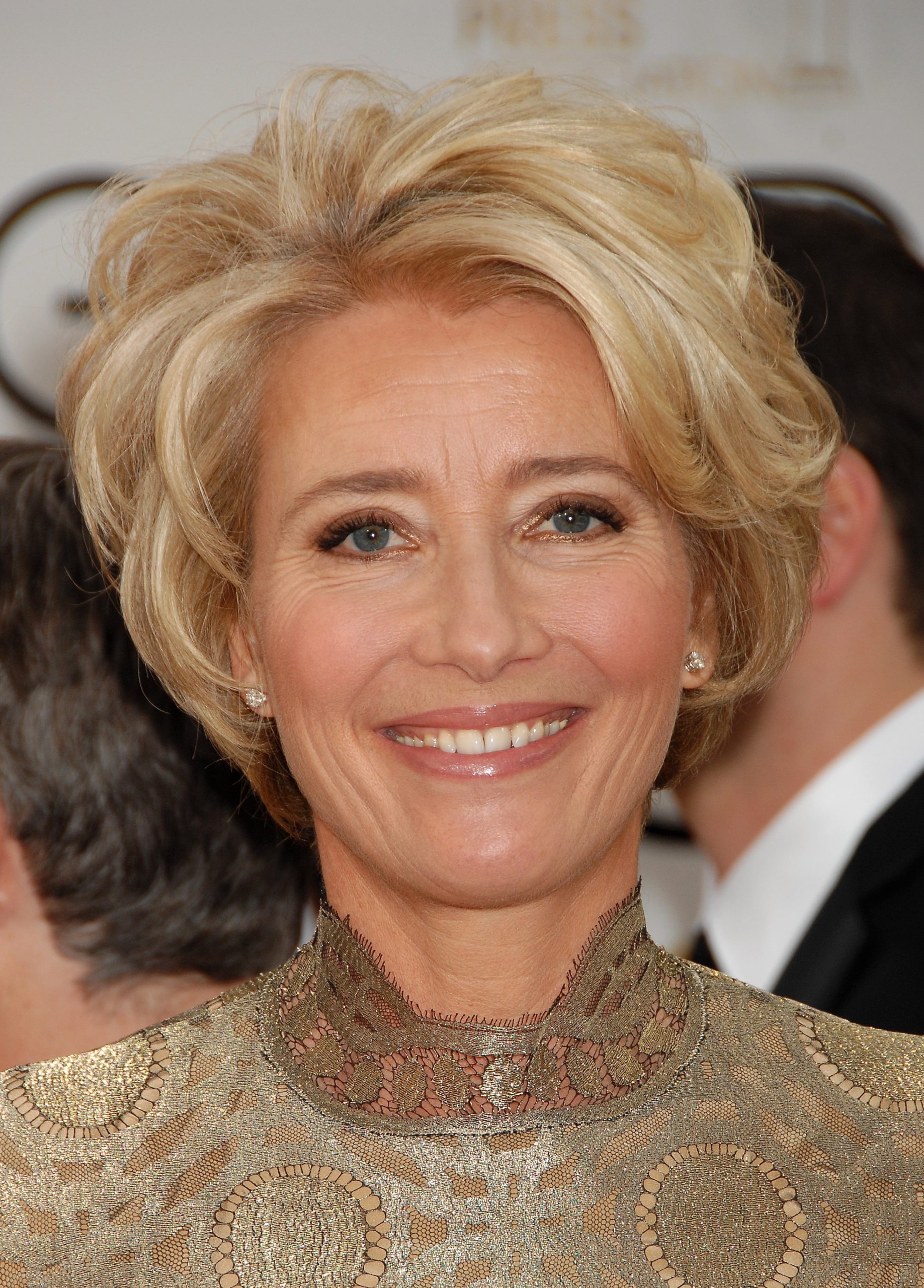
On this date in 1959, actress and screenwriter Emma Thompson was born in London. Her mother Phyllida Law, sister Sophie Thompson and father Eric Thompson were all actors. She studied English literature at Newnham College at Cambridge University (graduating in 1980), where she became active in the university’s famous theatrical group, the Footlights Revue.
She started her career with some BBC radio gigs, followed by appearances on a sketch comedy series called “Alfresco,” with Hugh Laurie, and a popular sitcom, “The Young Ones,” in Britain. In 1990 Thompson co-starred with Jeff Goldblum in “The Tall Guy,” her first major film. She won a BAFTA and an Oscar for Best Actress in her 1992 role in “Howard’s End.” She adapted Jane Austen’s Sense and Sensibility for the screen, the screenplay for which she deservedly earned an Academy Award for Best Adaptation in 1996, and starred in the film of the same title. Thompson gained an Emmy for guest starring in an episode of “Ellen” in 1997.
Her most memorable films include roles in “Much Ado About Nothing” (1993), “The Remains of the Day” (1993), “In the Name of the Father” (1993), “Primary Colors” (1998), “Love Actually” (2003), the series “Angels in America” (2003), in which she played an angel, “Stranger than Fiction” (2006), “Last Chance Harvey” (2008) and a recurring role as professor Sybill Trelawney in several of the Harry Potter films, which star freethinker Daniel Radcliffe.
“I’m an atheist; I suppose you can call me a sort of libertarian anarchist. I regard religion with fear and suspicion. It’s not enough to say that I don’t believe in God. I actually regard the system as distressing: I am offended by some of the things said in the Bible and the Qu’ran, and I refute them.”
“I think that the Bible as a system of moral guidance in the 21st century is insufficient, to put it mildly. I feel quite strongly that we need a new moral lodestone if we can’t rely on what is inside our own selves.”
— Thompson, "Acting on outspoken beliefs," The Australian, Oct. 15, 2008
Jack Nicholson
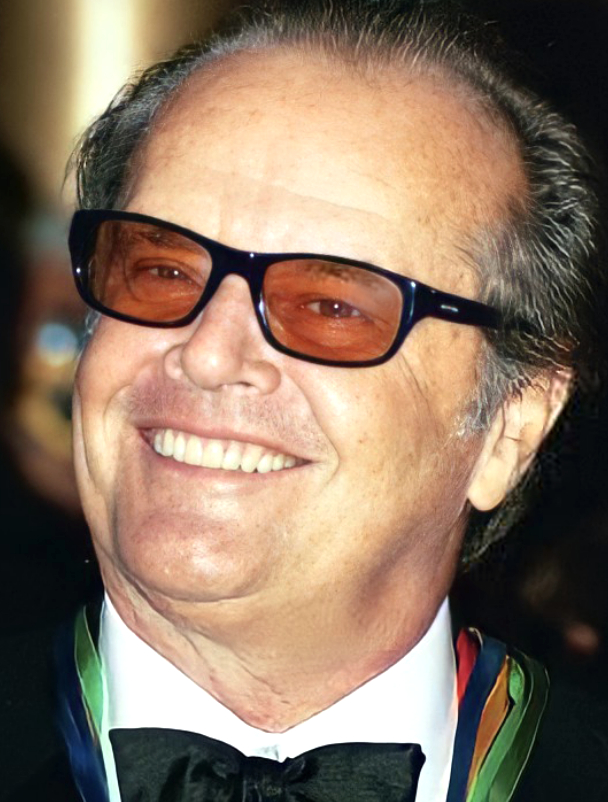
On this date in 1937, actor Jack Nicholson was born in New Jersey. He appeared in his first movie in 1958. “Five Easy Pieces” (1970) was a breakthrough role. His many notable movies include: “Easy Rider” (1969); “Carnal Knowledge” (1971); “One Flew Over the Cuckoo’s Nest” (1975), for which he won a Best Actor Oscar; “The Shining” (1980); “Terms of Endearment” (1983), for which he won the Best Supporting Actor Oscar; “Prizzi’s Honor” (1985); “Heartburn” (1986); “The Witches of Eastwick” (1987), in which he played “the devil;” “Batman” (1989); “A Few Good Men” (1992), “As Good as It Gets” (1997), which won him a second Best Actor Oscar, “About Schmidt” (2002), “The Bucket List” (2007) and “I’m Still Here” (2010).
Nicholson was raised as a Catholic but stopped attending church in high school. In a 1992 Vanity Fair interview, he said, “I don’t believe in God now.” Twelve years later, in an Esquire magazine interview, he said that he prayed “to something” and had “a God sense. It’s not religious so much as superstitious. It’s part of being human, I guess.”
PHOTO: Nicholson as a 2001 Kennedy Center honoree; © John Mathew Smith under CC 2.0.
“I resist all established beliefs. My religion basically is to be immediate, to live in the now. It’s an old cliché, I know, but it’s mine. I envy people of faith. I’m incapable of believing in anything supernatural. So far, at least. Not that I wouldn’t like to.”
— Nicholson, interview with Esquire magazine (January 2004)
George Clooney
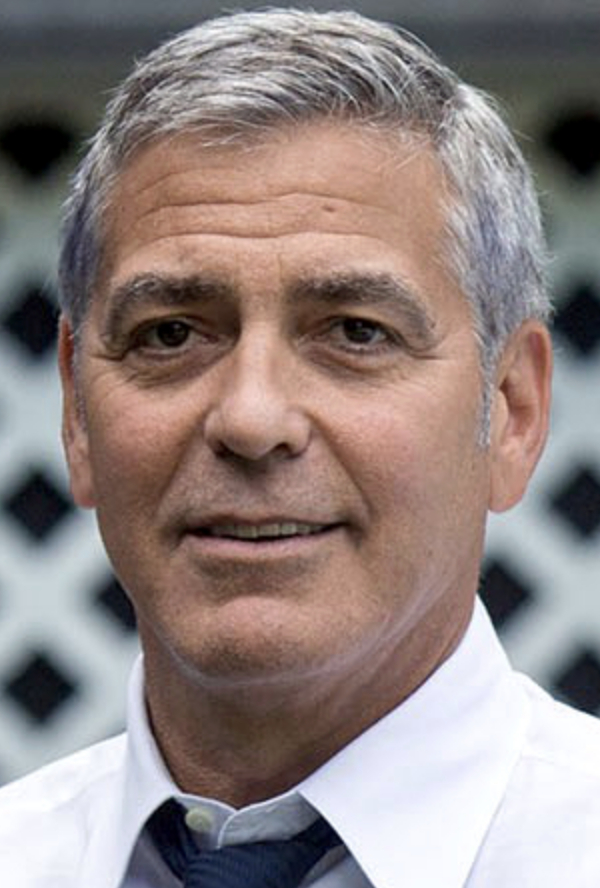
On this date in 1961, Oscar-winning actor George Clooney was born in Lexington, Ky. Clooney, whose aunt was the famous singer Rosemary Clooney, attended Northern Kentucky University. Clooney’s acting career began on television in the early 1980s, where he played in such shows as “Roseanne.” He was a regular on “ER” from 1994-99. Clooney has made numerous movies, including a comic turn as a skeptical, Depression-era Ulysses in “O Brother, Where Art Thou” (2000).
Other notable movies include “Three Kings” (1999), “The Perfect Storm” (2000), “Ocean’s Eleven” (2001, plus two sequels), “Gravity” (2013), “Tomorrowland” (2015) and “Hail, Caesar!” in 2016. Clooney has directed films, including “Good Night, and Good Luck” (2005), and has worked with Stephen Soderbergh, the freethinking director.
Clooney won the 2006 Academy Award for Best Supporting Actor for his role in “Syriana” (2005), received a 2012 Oscar for co-producing “Argo” and was the recipient of the AFI Lifetime Achievement Award in 2018. His Oscar nominations include Best Actor for “Up in the Air” (2009), Best Actor for “Michael Clayton” (2007), and both Best Director and Best Original Screenplay for “Good Night, and Good Luck.” He won Golden Globes for “Syriana,” “O Brother, Where Art Thou?” and “The Descendants” (2011).
His charitable work includes service as a “United Nations Messenger of Peace” since 2008, his advocacy regarding the Darfur conflict and his organization of the “Hope for Haiti” telethon to raise money for the victims of the 2010 earthquake.
PHOTO: Clooney in 2016; White House photo by Pete Souza.
"I don’t believe in heaven and hell. I don’t know if I believe in God. All I know is that as an individual, I won’t allow this life — the only thing I know to exist — to be wasted."
— Clooney profile in the Washington Post (Sept. 28, 1997)
Henry Fonda
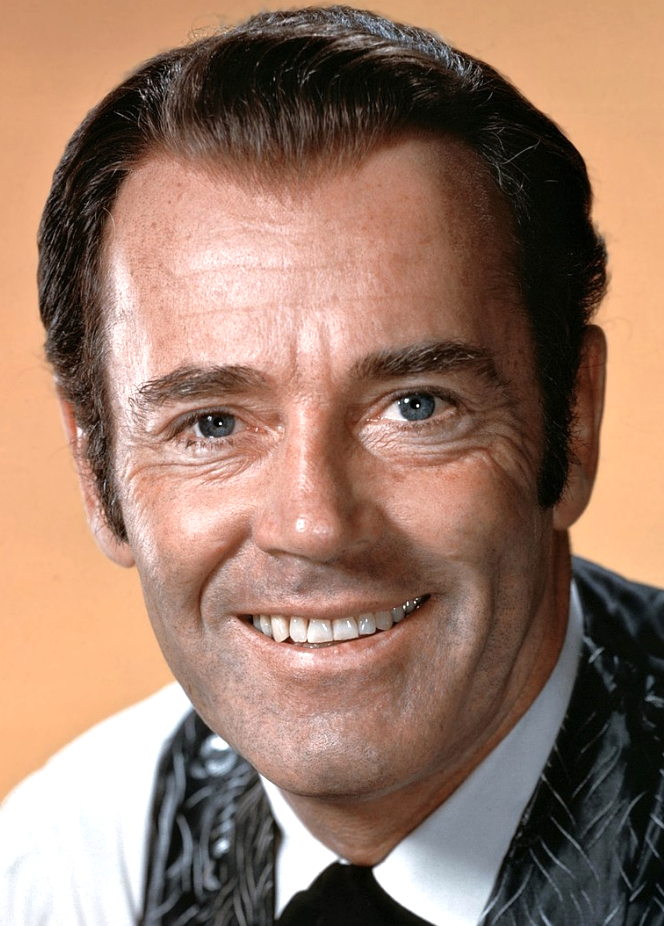
On this date in 1905, actor Henry Jaynes Fonda, the oldest of three children, was born in Grand Island, Neb., to William Brace Fonda and Herberta Krueger Jaynes. Although raised as a Christian Scientist, according to his biography, Fonda: My Life, written by Howard Teichmann in collaboration with Fonda, “[Fonda] claims to be an agnostic. Not an atheist but a doubter.” “My father was an agnostic,” wrote Jane Fonda in her autobiography, My Life So Far (2005).
Although he studied journalism in college, Fonda quit school and worked briefly in sales. At 20, Fonda started acting at the Omaha Community Playhouse. Between 1926 to 1934 he was in a myriad of theatrical productions before finally making his Hollywood debut in 1935, where his career took off. Fonda was nominated for an Academy Award for his performance in “The Grapes of Wrath” (1941). He won a Tony Award for his part as a junior officer in “Mister Roberts” (1948).
In 1957 he acted in and produced “12 Angry Men,” for which he shared the Academy Award and Golden Globe nominations with co-producer Reginald Rose, also winning the BAFTA Award for Best Actor for that film. Fonda was nominated for an Emmy for the TV movie adaptation of John Steinbeck’s novel, “The Red Pony” (1973). Returning to Broadway in 1974, he was nominated for a Tony Award for his riveting performance in the one-man show “Clarence Darrow.”
Although failing in health, Fonda continued acting in both TV and film, winning the Cecile B. DeMille Award for Lifetime Achievement in 1980. In 1981, he received a Lifetime Achievement Award from the Academy, as well as Best Actor for his performance in “On Golden Pond.” He also picked up the Golden Globe award for Best Motion Picture Actor for that movie. Making more than 100 films during his lifetime, Fonda was best known for his roles as the plain-speaking idealist. He was the father of three children, Jane and Peter Fonda, and their younger sister, Amy, and was the grandfather of actress Bridget Fonda. (D. 1982)
PHOTO: Fonda in a 1959 studio publicity shot for the movie “Warlock.”
“There had never been any renunciation of religion on my part, but like so many people, it was a gradual fading away.”
— Fonda, quoted in "Fonda: My Life" by Howard Teichmann (1981)
Angelina Jolie
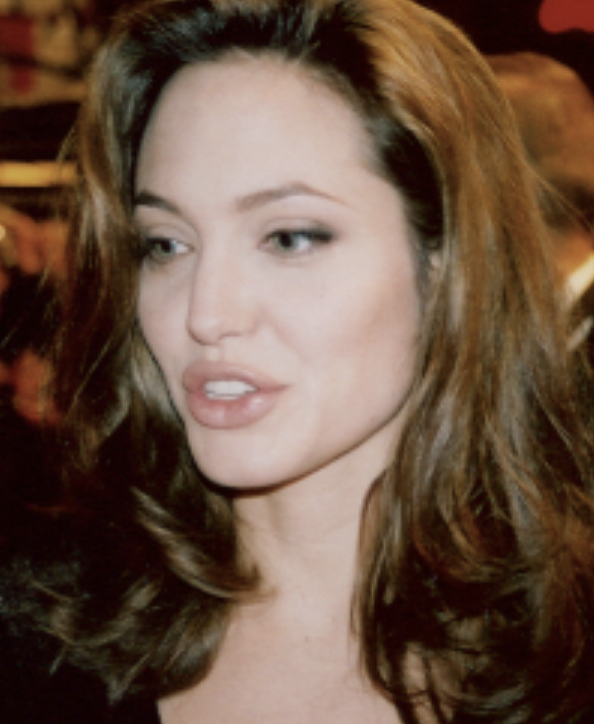
On this date in 1975, Angelina Jolie (née Angelina Jolie Voight) was born in Los Angeles to actor Jon Voight and Marcheline Bertrand. She majored in film at New York University and trained at the Lee Strasberg Theatre Institute as a youth. Jolie has been in almost 40 films to date, including an Oscar-winning performance in “Girl, Interrupted” (1999). Others that were critically acclaimed and became box office hits include “Beyond Borders” (2003), “Lara Croft: Tomb Raider” (2001, sequel 2003), “Changeling” (2008) and “A Mighty Heart” (2007).
Jolie has gained a reputation as a bold and controversial actress, especially for her roles in “Foxfire” (1996) and “Gia” (1998). She earned a Best Actress Oscar nomination for “The Changeling.” Her biggest commercial success to date is the fantasy picture “Maleficent” (2014). In the 2010s she expanded into directing, screenwriting and producing with the war dramas “In the Land of Blood and Honey” (2011), “Unbroken” (2014) and “First They Killed My Father” (2017).
Jolie serves as a Goodwill Ambassador for the United Nations High Commissioner for Refugees. She has traveled extensively to war-torn, impoverished countries, including Sierra Leone, Tanzania and Pakistan. At age 37 she had a double preventive mastectomy after learning she had an 87% chance of developing breast cancer. She had a 12-year relationship (including marriage) and several biological and adopted children with actor Brad Pitt. They divorced in 2019.
Jolie at the 2004 premiere of “Alexander” in Cologne. Photo by Stefan Servos. Creative Commons Attribution-Share Alike 3.0
“For the people who believe in it, I hope so. There doesn’t need to be a God for me.”
— Jolie, responding to the question "Is there a God?" The Onion A.V. Club (Sept. 6, 2000)
Natalie Portman
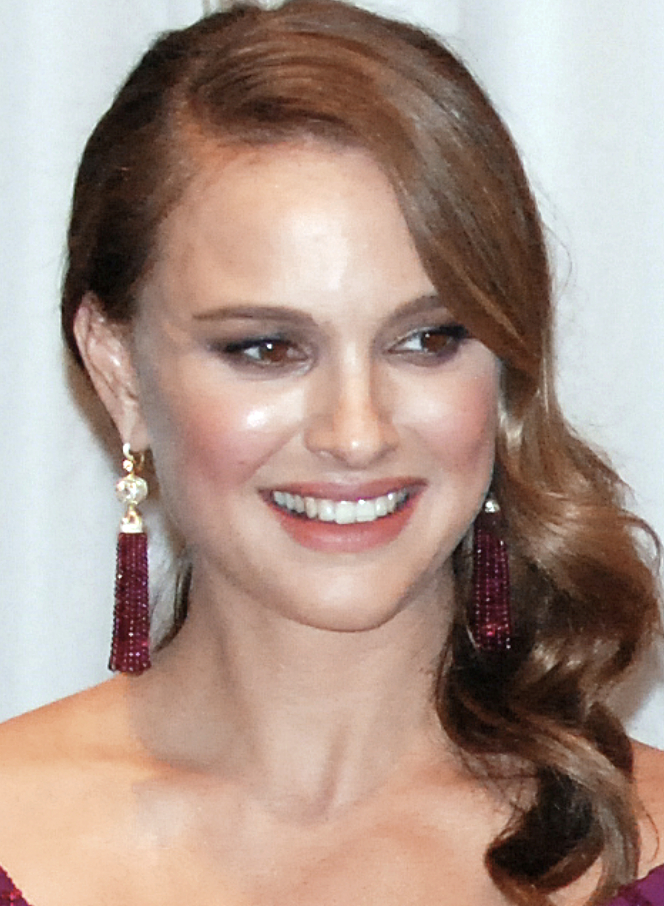
On this date in 1981, actress Natalie Hershlag (stage name Natalie Portman) was born in Jerusalem, Israel. Portman’s ancestors were Austrian, Russian, Polish and Romanian Jews. Some emigrated to Israel and others died in Auschwitz. Portman’s parents met in the U.S. at Ohio State University. When she was 3 they moved to Washington, D.C., where her father earned a medical degree and became a fertility specialist.
Starting at age 13, Portman landed roles in several popular films, including “The Professional” (1994), “Heat” (1995), “Beautiful Girls” (1996), “Mars Attacks!” (1996) and the musical “Everyone Says I Love You” (1996).
She gained international fame for playing Queen Amidala/Padmé in “Star Wars: Episode I” (1999) and had to skip the premiere to take her high school final exams. Portman reprised that role in “Star Wars” sequels in 2002 and 2005 and had powerful roles in hit films such as “Anywhere but Here” with Susan Sarandon (1999), “Where the Heart Is” (2000), “Cold Mountain” (2003), “V for Vendetta” (2006), “The Other Boleyn Girl” (2008), “Brothers” (2009) and “Black Swan” (2010), for which she won the Best Actress Golden Globe (2011) and the Best Actress Academy Award (2011). She won her first Golden Globe for her role in the 2004 hit film “Closer,” for Best Supporting Actress.
Portman, who has had several papers published in scientific journals, graduated with a degree in psychology from Harvard in 2003. In addition to her screen work, she is an accomplished stage actress, performing in “The Seagull” at the New York City Public Theater alongside Meryl Streep and Philip Seymour Hoffman (2001), and playing Anne Frank in the Broadway adaptation of “The Diary of Anne Frank” (1997).
Continuing to act and produce films in the 2010s, Portman was Oscar-nominated for her portrayal in “Jackie” (2016) of Jacqueline Kennedy after JFK’s death. She played a troubled pop star in the 2018 drama “Vox Lux,” for which she received praise.
Portman speaks Hebrew and has dual U.S.-Israel citizenship. In 2012 she married Benjamin Millepied, a French ballet dancer and choreographer whom she met on the set of “Black Swan.” They have a son, Aleph, born in 2011, and a daughter, Amalia, born in 2017.
PHOTO: Portman at the 2011 Academy Awards in Hollywood, Calif.
“I’m much more like the product of a doctor than I am a Jew. I don’t believe in [an afterlife]. I believe this is it, and I believe it’s the best way to live.”
— Rolling Stone magazine interview, "The Private Life of Natalie Portman" (June 20, 2002)
Meryl Streep
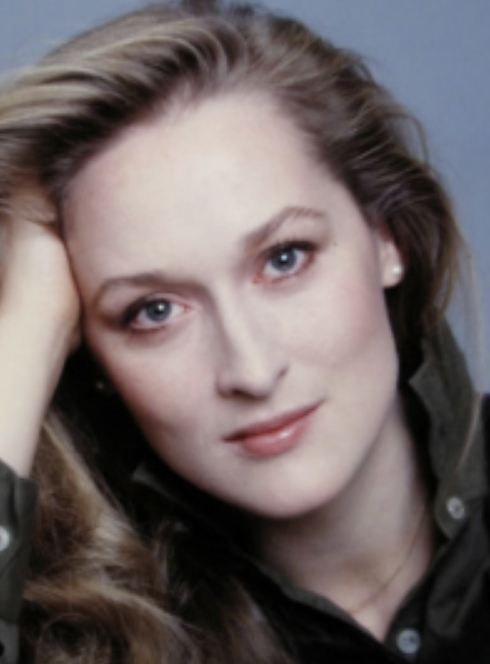
On this date in 1949, Meryl Streep (née Mary Louise Streep) was born in Summit, N.J. Her Presbyterian parents, a commercial artist mother and pharmaceutical executive father, allowed her to attend Catholic Mass because many of her friends were Catholic. Streep dreamed of being an opera singer but gravitated to acting in high school when she received a standing ovation for playing the librarian in “The Music Man” at her school, where she was homecoming queen.
Streep studied drama and English at Vassar, graduating in 1971. She then studied at Dartmouth and Yale, performing in over 30 Yale Repertory Theatre productions (along with Sigourney Weaver) and graduated with a master’s in 1975. She had a small but attention-grabbing role in her first film, “Julia” (1977), which starred Jane Fonda and Vanessa Redgrave. Streep earned her first Oscar nomination for “The Deer Hunter” in 1978.
She holds the record for actress with the most Oscar nominations (21, as of 2019) and has won Best Actress twice (for “Sophie’s Choice” in 1982 and “The Iron Lady” in 2011, playing Margaret Thatcher). She won Best Supporting Actress in 1979 in “Kramer vs. Kramer.” She has won five Best or Best Supporting Actress Golden Globes. A versatile actress, she has played roles in almost every genre, from musical to drama to comedy.
Streep married sculptor Don Gummer in 1978 and they have four children. She identifies as a political liberal and has supported many causes over the years, including the Elton John AIDS Foundation, Americans for the Arts, Equality Now and Stand Up to Cancer.
When her movie “Doubt” (2008) debuted, she faced numerous questions on her religious views. “Doubt is our friend,” she told the London Telegraph. “And once you tip the scales in one direction or another it’s very, very dangerous.” (“Meryl Streep: mother superior,” Dec. 4, 2008.)
PHOTO: Streep in 1979; public domain photo by Jack Mitchell
“I follow no doctrine. I don’t belong to a church or a temple or a synagogue or an ashram.”
— Streep, asked if religion plays a part in her life, The Independent (Jan. 24, 2009)
Stanley Kubrick
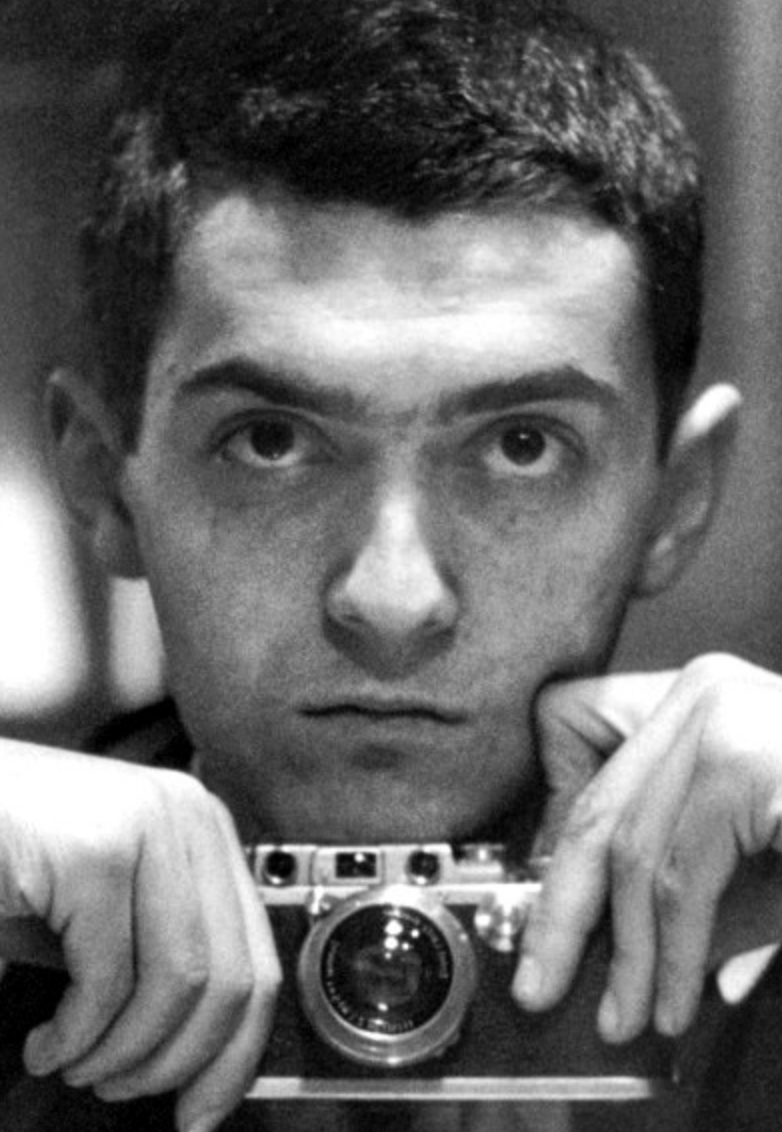
On this date in 1928, filmmaker Stanley Kubrick was born in New York City to secular Jewish parents, Sadie (Perveler) and Jacob Kubrick, a physician. He gave up his idea of becoming a jazz drummer after his father gave him a Graflex camera at age 13, and his photographic talent blossomed.
Shortly after graduating from high school in 1945, he snapped a photo of a weeping man surrounded by newspapers announcing FDR’s death. He submitted it to Look magazine, received $25 and was hired by Look a year later as an apprentice photographer. In 1948 he married Toba Metz, his high school sweetheart, in a union that lasted three years.
After making several low-budget short films, he directed the first of his 13 feature films, “Fear and Desire,” in 1952. Following that were “The Killing” (1956), “Spartacus” (1960), “Lolita” (1962), “Dr. Strangelove, or How I Learned to Stop Worrying and Love the Bomb” (1964), “2001: A Space Odyssey” (1968), “A Clockwork Orange” (1971), “Barry Lyndon” (1975), “The Shining” (1980), “Full Metal Jacket” (1987) and “Eyes Wide Shut” (1999).
His critically acclaimed “Spartacus” featured an all-star cast including Kirk Douglas and Laurence Olivier. The screenplay was written by blacklisted Hollywood Ten victim Dalton Trumbo. The film won four Oscars and received six Golden Globe nominations. President John F. Kennedy crossed an American Legion picket line to watch it.
Kubrick’s second marriage, to dancer and actress Ruth Sobotka, ended in 1957. The next year he married actress Christiane Harlan. They had two daughters, Vivian and Anya, and, concerned about violence in America, in 1961 moved to England, where they lived until his death 40 years later.
British censors were also more forgiving about his movie “Lolita” and its acceptance of Vladimir Nabokov‘s character Humbert Humbert, obsessed with a barely pubescent girl played by Sue Lyon. Lolita’s mother, played by Shelley Winters and in love with Humbert, asks him if he believes in God. He answers, “The question is does God believe in me?”
Kubrick’s science fiction epic “2001: A Space Odyssey,” co-written with Arthur C. Clarke, is widely seen as among the most influential films of all time and one subject to a variety of interpretations. Kubrick refused to divulge what the meaning was and if some critics were correct in calling it “profoundly religious.”
Kubrick: “How much would we appreciate La Gioconda today if Leonardo had written at the bottom of the canvas: ‘This lady is smiling slightly because she has rotten teeth’ or ‘because she’s hiding a secret from her lover?’ It would shut off the viewer’s appreciation and shackle him to a ‘reality’ other than his own. I don’t want that to happen to ‘2001.’ ” (Playboy magazine interview, September 1968)
He further says in the interview that humans have to create their own meaning. “The most terrifying fact about the universe is not that it is hostile but that it is indifferent. … However vast the darkness, we must supply our own light.” He would say that “chance chemical reactions” over billions of years created life on Earth, not God or some godlike being.
He died of unexpectedly during the night of a heart attack at age 70 a week after screening the final cut of “Eyes Wide Shut.” (D. 1999)
PHOTO: Kubrick at age 21 in Look magazine; public domain photo.
“I don't believe in any of earth's monotheistic religions, but I do believe that one can construct an intriguing scientific definition of God, once you accept the fact that there are approximately 100 billion stars in our galaxy alone, that each star is a life-giving sun and that there are approximately 100 billion galaxies in just the visible universe.”
— Kubrick interview (Playboy, September 1968)
Peter O’Toole
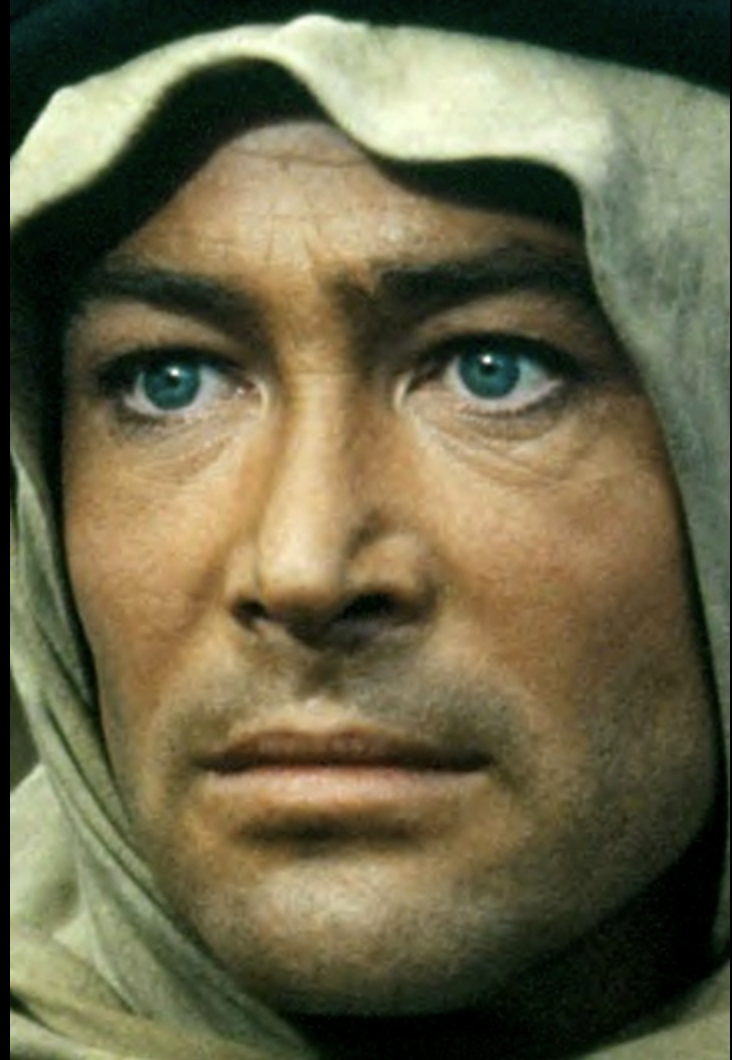
On this date in 1932, Peter O’Toole was born in Connemara, Ireland. When he was 16 he began working at the Yorkshire Evening News, but his journalism career was cut short when he was drafted into the navy. O’Toole later attended the Royal Academy of Dramatic Art, where he began acting in the theater. Starting in 1955, he spent three years apprenticing as a Shakespearean actor with Bristol Old Vic, a prominent theater company in Bristol, where he performed in over 70 productions.
O’Toole acted in his first film, “The Savage Innocents,” in 1960. The role that brought him to fame was his portrayal of T.E. Lawrence in the 1962 classic “Lawrence of Arabia.” O’Toole has since starred in many other notable films, including “Becket” (1964), “The Lion in Winter” (1968), “Goodbye, Mr. Chips” (1969) and “The Stunt Man” (1980). He received eight Best Actor Oscar nominations and in 2003 was awarded a Lifetime Achievement Oscar. O’Toole was married to actress Siân Phillips for 20 years and had two children with her, actress Kate O’Toole, born in 1960, and Patricia O’Toole, born in 1963. He also has a son, Lorcan, born in 1983.
O’Toole described himself as a “retired Christian” to The New York Times in 2007, as well as during an interview with Charlie Rose on PBS in 2008. He told the Times that he prefers “an education and reading and facts” to faith. In 1972 he played a delusional character who believed he was Jesus in the film “The Ruling Class.” During the film, O’Toole’s character says, “When did I realize I was God? Well, I was praying and I suddenly realized I was talking to myself.” (D. 2013)
PHOTO: O’Toole in “Lawrence of Arabia” in 1962.
"I am a retired Christian."
— "Papal Robes, and Deference, Fit O'Toole Snugly" (New York Times, July 26, 2007)
Jodie Foster
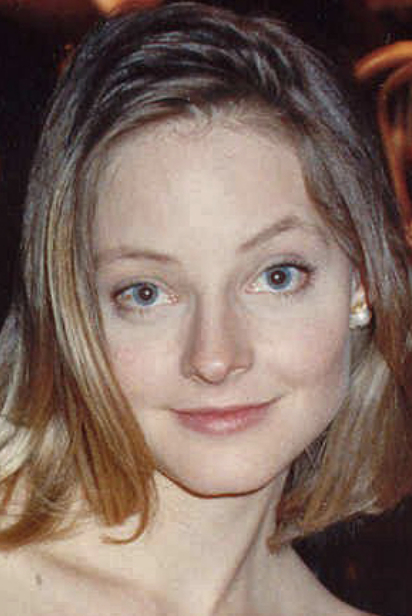
On this date in 1962, actress Alicia Christian “Jodie” Foster was born in Los Angeles. Her parents divorced before she was born and she never established a relationship with her father. Her professional debut was at age 3 in a Coppertone Suntan lotion commercial. Foster made a series of TV appearances and movies as a child, the first on “Mayberry R.F.D., and was once mauled by a lion while making a Disney film. Her breakthrough role was as a preteen prostitute in “Taxi Driver” (1976).
She graduated from a French-language prep school, the Lycée Français de Los Angeles, in 1980. During her freshman year at Yale, John Hinckley Jr., obsessed with her in “Taxi Driver,” started stalking her. Hinckley tried to assassinate President Ronald Reagan in a warped paean to Foster in 1981. She graduated magna cum laude with a degree in literature in 1985.
She has earned two Academy Awards as best actress, for “The Accused” (1988) and for “The Silence of the Lambs” (1991). Her many movies include “Nell” (1994), and “Contact” (1997), in which she memorably portrayed the atheist astronomer protagonist based on Carl Sagan‘s novel. She has also directed movies, including “Little Man Tate” (1991) and “Home for the Holidays” (1995). Her latest role as of this writing in 2019 was in “Hotel Artemis” (2018).
Foster’s sexual orientation became a subject in 1991 when activists protesting alleged homophobia in “The Silence of the Lambs” claimed she was a closeted lesbian. While she had long been in a relationship with Cydney Bernard, Foster first publicly acknowledged her orientation in 2007. She and Bernard split in 2008 after 15 years together, with joint custody of sons Charles and Kit (ages 20 and 17 in 2019). Foster married photographer Alexandra Hedison in 2014. She has said she would tell Charles who his biological father is when he turned 21.
“People are always surprised when I say that I’m an atheist,” Foster told Esquire magazine (“What I’ve Learned,” Dec. 14, 2010). “In my home, we ritualize all of them. We do Christmas. We do Shabbat on Fridays. We love Kwanzaa. I take pains to give my family a real religious basis, a knowledge, because it’s being well educated. You need to know why all those wars were fought.”
Photo: Foster at the 1989 Academy Awards; photo by Alan Light.
"I absolutely believe what Ellie [the atheist astronomer in the movie ‘Contact’] believes — that there is no direct evidence, so how could you ask me to believe in God when there’s absolutely no evidence that I can see? I do believe in the beauty and the awe-inspiring mystery of the science that’s out there that we haven’t discovered yet, that there are scientific explanations for phenomena that we call mystical because we don’t know any better."
— Foster, interview with The Georgia Straight weekly (July 10, 1997)
